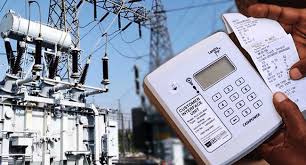The President Bola Tinubu administration since it came on board on May 29, 2023, has never hidden its policy to remove anything subsidy. His subsidy is gone speech and floating of naira are two classical examples. However, since the removal of fuel subsidy which the administration described as conduit pipe for siphoning government’s funds, the lives of the average Nigerians have growth from bad to worst. Inflation rose to 30%, the highest ever in the history of Nigeria which reduced the purchasing power and plunged millions of Nigerians into poverty. While subsidy removal has freed more funds to the three tiers of government, evidence shows that there is no commensurate infrastructural development across the country to justify it.
The removal of fuel subsidy has unarguably resulted in increase in pump price and cost of doing business in the country. Nigerians who have been grappling with high cost of living found solace or succour in electricity. Though, the power sector had been privatised by the President Olusegun Obasanjo administration, Nigerians have been paying for darkness as Discos have failed to provide reliable and efficient power supply.
The recent decision of the federal government to further remove electricity subsidy was greeted with mixed reactions from Nigerians. The removal of electricity subsidy is coming at a wrong time when Nigerians are yet to recover from the shock of last year’s hike in the prices of petroleum products. With only 44% metered customers, Nigerians had thought that,government, through the Nigerian Electricity Regulatory Commission, NERC, will provide adequate meters and improve power generation and distribution in the country.
Unfortunately, this has not been the case. There is nothing wrong to ensure cost reflective among the numerous energy consumers in the country. Although the categorisation of customers into different “bands” by NERC can be seen as a good development but the question is: will the new plan address the erratic power supply? For instance, under NERC’s new tariff plan, customers on band ‘A’ will enjoy 20hours power supply at 225kwh as against N68/kwh.
The Band ‘A’ customers which include: the elite, banks, factories can shoulder the new tariff hike, but a further breakdown of the new tariff reveals an alarming burden that the average Nigerian will face in affording electricity on a daily basis. Under the new tariff plan, 24 hours of electricity per day will cost a staggering N5,400, amounting to an unbearable monthly total of N162,000 and an astounding yearly total of N1,971,000.
These exorbitant amounts are simply unaffordable for the majority of Nigerians, who are already grappling with economic hardship and trying to make ends meet. The new tariff regime will also see factories’ cost of productions go up with corresponding increase in prices of goods and services. Consequently, the companies have not option than to pass the burden to the end users (consumers). According to the NERC, the new tariff will affect 15 percent customers who enjoy 40% power supply. But at the end, millions of Nigerians will be worst hit by the new tarrif regime.
It is a well known fact that even in developed countries, electricity subsidy exists. Government provides or grant subsidies to companies and other households in order to keep the prices of goods and services within the reach of the common man. The rush with which the Tinubu administration removes subsidies amidst growing poverty in the land calls for great caution. Already, the Nigerian Union of Electricity Workers has condemned the hike in tariff and called for immediate reversal. The union chided the minister of power and NERC for not consulting them before they came up with the plan. The federal government should shelve the plan for the removal of electricity subsidy.
Instead, government needs to improve power supply and exploit other alternative sources of energy such as solar and winds. Government should hasten the completion of the abandoned Mambilla power project to improve power generation and distribution in the country.
Ibrahim Mustapha,
Pambegua, Kaduna state
08169056963.




